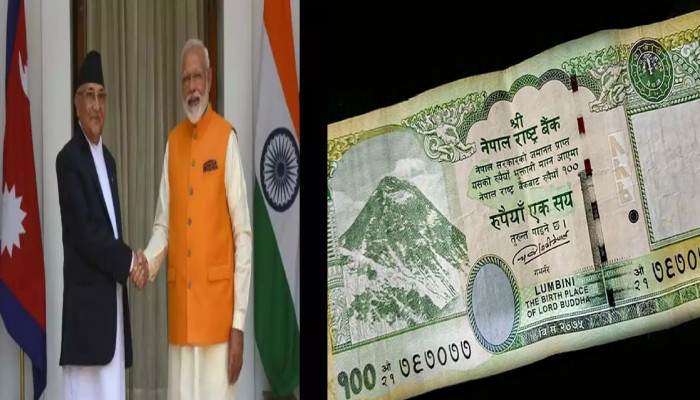Traders reject Nepal's new currency note depicting disputed territories
- In Reports
- 05:15 PM, Nov 05, 2024
- Myind Staff
Traders along the Indo-Nepal border in Uttarakhand have strongly opposed against Nepal's new Rs 100 currency note. This note features a map that shows the disputed areas of Kalapani, Lipulekh, and Limpiyadhura as part of Nepal. As a result, traders and businesspeople have declared that they will not accept these notes for transactions, even if it negatively impacts their business.
China Banknote Printing and Minting Corporation was recently given a $90 million contract by Nepal Rastra Bank to print 30 million 100-rupee notes, with an approximate printing cost of $8.99 million. The action has rekindled discussion in Uttarakhand's border regions, which have a "roti-beti" relationship with Nepal. Hundreds of women from both Nepal and Uttarakhand rely on one another for trade and employment, and many of them are married into families on the other side of the border.
Hundreds of Nepalese people enter Dharchula every day for work, frequently making purchases with Nepali money. Despite their historical acceptance of Nepalese currency, Indian traders are now refusing to accept the contentious notes. "These areas are an integral part of India, and Nepal's act is against the goodwill of both countries," stated Bhupendra Thapa, president of the traders' association in Dharchula, Pithoragarh. Indian traders are determined not to accept these notes for trade, he continued.
Jhulaghat trader Sanjeev Joshi voiced his disapproval of Nepal's actions, calling them detrimental to both countries. "No Indian businessman would accept these controversial notes. These types of activities also disturb the normal relations between both countries," he said. The two nations' territorial dispute dates back to the 1960s and has since resurfaced on occasion.
A vital road connecting Uttarakhand's Dharchula and Lipulekh pass was opened by Defense Minister Rajnath Singh in May 2020. Nepal protested road construction, claiming that the road "crossed its territory". However, India disputed Nepal's assertions, arguing that the road was inside its boundaries. Nepal reacted three months later with a constitutional amendment, formally redrawing its map to include Limpiyadhura, Kalapani, and Lipulekh. The country claimed that India had seized these areas after the 1962 border dispute with China.
S Jaishankar, the foreign minister, once remarked about Nepal's unilateral action, saying, "Our position is very clear. With Nepal, we are discussing our border matters through an established forum. In the middle of this, they have taken some unilateral steps on their part... But by doing something on their part, they are not going to change the situation or the ground reality between us."







Comments